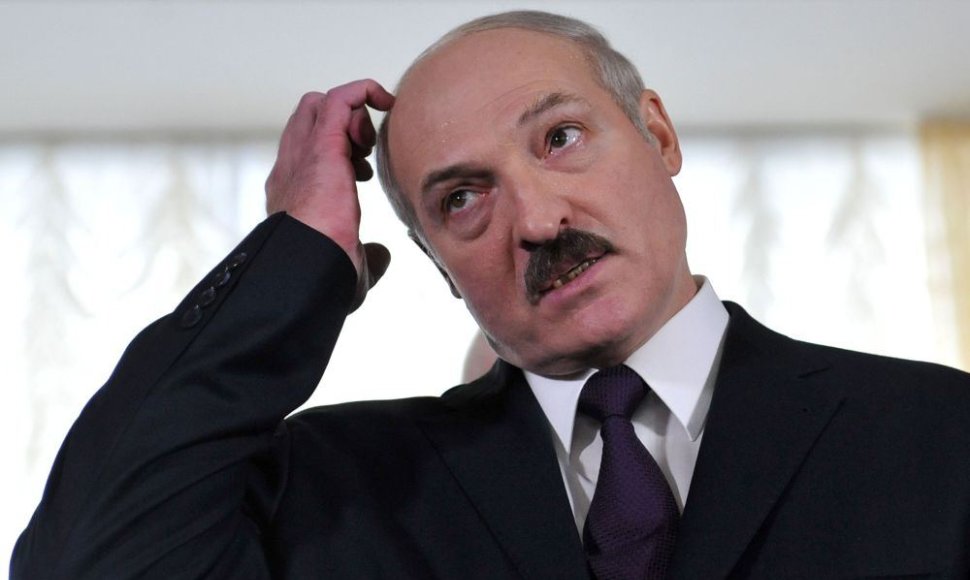"If teddy-bears are a threat to the Belorussian administration, Lukashenko's regime must be cracking at the seams. Indeed, people in Belarus are faced with far more serious problems," the expert of Vilnius University's International Relations and Political Science Institute told BNS.
He compared the situation with the persecution of a girl punk-rock band Pussy Riot in Russia.
"Vladimir Putin and Lukashenko have come up with tremendous evil to fight – Pussy Riot and teddy-bears. This should be viewed in an indulgent or humorous manner, but their behavior is characteristic of authoritarian leaders. It may seem funny to us but it is a tragedy for those who have to face it,” Maliukevičius added.
Lukashenko said he was awaiting answers from Lithuania in connection to the Swedish teddy-bear campaign.
Swedish activists last month reported to have unlawfully entered the Belorussian territory by plain and dropping hundreds of teddy bears with tiny parachutes with attached notes campaigning for free speech and human rights.
The airplane reportedly entered Belarus from Lithuania's territory.
Keeping cold peace with Belarus
The Swedish-initiated teddy-bear campaign should not be idealized, as it consciously violated the law, and Lithuania must respond to the Swedish airplane's flight to Belarus from its territory and carry out a competent investigation, security and defense policy expert Aleksandras Matonis thinks.
"The teddy-bear landing as a public relations campaign – it is classic, ingenious, perfect and should be included in all textbooks. The question is whether the public relations (campaign) carried out in the territory of a foreign country and implicitly violating certain legal acts of one or a few countries should be idealized," Matonis told BNS on Thursday.
He noted that Lithuania's failure to control 100-percent of its air-space had not been a secret for long, adding that the soreness was highlighted by the flight of Valery Troyanov back in 2005 when the Russian fighter crashed in the Lithuanian territory.
"The picture seen by civilian air control is probably different from that of military air control, and the fact that the systems are not compatible 100 percent allow uncontrolled flights of small aircrafts in border territories and crossing of state borders. This is an old problem," the expert said.
In his words, the Swedish public relations campaign puts Lithuania in an ambiguous situation. Matonis wonders at the extent to which Lithuania should support the campaign, which was intentionally illegal. He listed the “state response to the fact” as one of the problems in the context of the 4 July flight.
Matonis said Lithuania's response to the violation of legal acts was dual. Earlier on Thursday, the Civil Aviation Administration announced its plans to open an administrative investigation into the violation, while the defense system, in the expert's words, “does not admit the incident at all.”
"I think it is a highly dangerous situation, as denial of clear facts raises doubts in the national defense system. Secondly – failure to take legal measures in response to the violation that was committed in our territory may cause our neighbors and opponents to think that they should be allowed to do the same. Who could deny that such nihilism might push small or large airplanes into coming to Lithuania's territory to drop something?" he asked rhetorically.
Matonis dismissed the defense communication in the context of the teddy-bear campaign as "mysterious."
"Is such communication intended to protect the institution's good name? In such a case, the communication could be in part successful. They say the air-space violation was never registered, maybe the air-space violation was not registered with some sort of military understanding or military instruments. This could be true. However, since the national defense system is not separate but part of our state governance system, the question is about the extent the communication has been keyed up with other institutions. If it hasn't, it's bad, and if it has been coordinated and the position reflects the state position, are we trying to hear from the lips of state officials that the fact that took place never occurred?" the expert said.
Following a threatening message made by Belarusian President Alexander Lukashenko in connection to the incident, Matonis said Lithuania should respond to the 4 July flight.
"I think we should decide what we want – cold peace or cold war? I believe we're not ready for cold war to be able to offer something in exchange on such level of rhetoric. To keep cold peace, Lithuania should respond in due manner to the fact," the expert said.
He noted Lithuania should bring the Swedish pilots to justice for violation of flight rules, if the investigation proves them guilty.












